The Importance of Protein for Athletes
Protein for Athletes: How much do you really need and the best sources to achieve your goals
As athletes, we understand the importance of protein for maximizing our performance and achieving our goals. But how much protein do we need, and which sources are the best for meeting our nutritional requirements? Today we are diving deep into protein, uncovering the optimal intake levels and the best sources to fuel our bodies effectively.
Dietary protein vs supplemental protein
Dietary protein comes from food and is commonly found in animal products such as meat, dairy, eggs, poultry and seafood; plant-based protein such as beans, lentils, certain grains (like quinoa), legumes (think chickpeas), and vegetables like Brussels sprouts, spinach, avocado. You can also get protein in supplement form, such as whey protein powder (made from the whey found in milk), soy protein powder or pea protein powder.
Protein requirements: are you getting enough?
The optimal amount of protein consumed at each meal varies depending on age, sex, weight, activity level, and overall health goals. A general guideline is a protein intake of around 20-30 grams per meal to promote stable blood sugar levels, control cravings, support recovery, and maintain energy throughout the day. Some sources recommend having 40 to 50 grams of protein at your first and last meal of the day.
Protein powerhouses: unveiling the best sources for athletes
When fueling athletic performance, incorporating high-quality protein sources is essential. Here are some of the best dietary sources of protein for athletes:
- Lean animal-based protein, such as lean cuts of beef, chicken breasts, turkey, and fish. Beef provides essential minerals like iron and zinc. Salmon, tuna, and cod are packed with protein and omega-3 fatty acids for overall health benefits. Eggs are also a complete protein source, offering all essential amino acids and travel easily.
- Dairy products, such as Greek yogurt, cottage cheese, and milk. Greek yogurt has a higher protein content than regular yogurt and contains beneficial probiotics. Cottage cheese is considered low-fat and high-protein, perfect for post-workout recovery.
- Plant-based proteins, such as legumes (lentils, chickpeas, black beans, and edamame), are rich in protein, fibre, and various vitamins and minerals. Quinoa is a complete plant-based protein source, packed with essential amino acids, and tofu and tempeh are nutritional options.
- Nuts and seeds, such as almonds, walnuts, and cashews, provide protein and healthy fats. Chia seeds and flaxseeds offer protein, fibre, and omega-3 fatty acids.
Popular protein supplement options include:
- Whey
Whey is fast digesting, has a high amino acid concentration, and contains all nine essential amino acids, making it a complete protein. Notably, it includes the three branched-chain amino acids (BCAAs), leucine, isoleucine, and valine, which maximize muscle protein synthesis. If you cannot digest milk protein, skip this one and try a plant-based alternative.
- Creatine
Creatine, one of the most well-studied supplements on the market, is an amino acid-like supplement that provides the quick energy needed for powerful muscle contractions, such as sprinting, weight lifting, and strength training.
*Pro-tip – Should you supplement with whey or creatine?
Both whey protein powder and creatine supplements increase muscle mass, but they accomplish this differently. Whey protein stimulates increased muscle protein synthesis, while creatine increases strength and muscle mass by increasing exercise capacity. If you aim to maintain a well-rounded fitness routine, whey protein may be a good option to aid muscle building and recovery. If you want to maximize muscle mass and strength, taking whey protein and creatine may be beneficial. To ensure you make the right decision for your goals, consult a healthcare practitioner.
- Branched-chain amino acids (BCAAs)
The branched-chain amino acids leucine, isoleucine, and valine support muscle energy, help increase muscle growth, decrease muscle soreness, and reduce exercise fatigue.
- Soy
Soy protein, a complete and fast-release plant-based protein, is an ideal choice for vegetarians and individuals with lactose intolerance. Soy often comes from genetically modified sources, so opt for organic if possible.
- Brown rice
While brown rice protein is not a complete protein, it is nutritious, contains fibre, antioxidants, is suitable for those with food sensitivities, and contains a considerable amount of protein.
- Pea
Pea protein is one of the most popular plant-based supplements. While it does contain all nine essential amino acids, some are minimal, so not all sources consider it a complete protein. It is high in fibre, has a high protein content, and is easily digestible.
Beyond protein: the importance of a balanced diet
While protein is required for our bodies to function optimally, it is also essential to maintain a well-rounded and balanced diet. Alternate your protein sources, and be sure to eat a diet rich in vitamins and minerals by varying your intake of fruits, vegetables, and healthy fats.
Every athlete’s protein needs and dietary preferences may vary. Tailor your protein intake to your unique needs to optimize your athletic performance and achieve remarkable results.
If you’re looking for more information on which supplements would be right for you, visit us in store and have a chat with one of our experts. We can also be reached on Facebook and Instagram. Now it’s your turn to tell us, how do you incorporate greens into your diet? Be sure to tag us! We are #ReflexNation.





